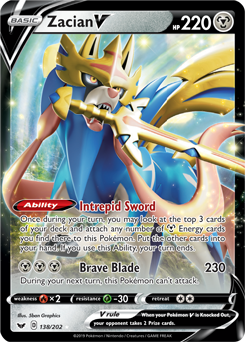Skill-Intensive Standard — Decision Making and Sequencing Part 2

Hello everyone! This is Grant Manley once again. Today I’ll be bringing you a different type of article. Usually I write about a deck or two, explain the lists, and cover matchups. Today I want to go a little deeper and look at the technical gameplay side of things. If you’ve been around for awhile, you may have read a similar article of mine. Last year, I published this article about decision making, sequencing, and other gameplay tips. My goal is to offer some advice that might not be so obvious, even for players that have been playing for years. I thought that article turned out well, and I recommend checking it out now. If you read my article last year, I’d say to review it again. I want to help people improve and optimize their play. Deck articles are useful and they do include gameplay advice, but that’s not the focus of them. Not only do I want to bring you some article variety, but something a bit more nuanced.
There’s a few reasons why I am referring you to this older article of mine. When someone is presented with lots of information, their brain consciously or unconsciously filters out the parts that are deemed less useful. Only so much information can be assimilated at one time. Over time, the retained information dwindles away. The brain needs exercise to stay sharp. In order for information to stick, it either needs to be repeated or have a strong first impression.
Another reason is because that article is Part 1, it naturally serves as a decent starting point. While this article isn’t necessarily a direct sequel and can be read on its own, I feel obligated to refer you to the base article of this series. Part 1 is still relevant. Most, if not all of the examples and concepts in that article applies today, despite it being a bit old. I make references to Custom Catcher, a popular card at the time, but that can be replaced by Boss's Orders when reading in today’s context. Other concepts such as identifying and exploiting win (or loss) conditions, sequencing, and board analysis apply as normal.
Today’s article will be a bit more specific to the current format. Two of the most popular decks now are Spiritomb and Combo Zacian V (often referred to as Combo Z). There are two interesting things I’ve noticed about both of these decks and they are closely related to each other. First, both decks involve many more decisions (especially sequencing decisions) than the average deck. As such, they have a high skill cap and skilled players can noticeably pilot these decks better than unskilled or less-practiced players. Even top players make several mistakes with these decks.
In this current era without live tournaments, the game is thriving through online content creation, PTCGO, and online tournaments. These days, there is more of a spotlight on Pokemon being played in a watchable format, so it’s easier to analyze games of every matchup from many different players, including top players. For example, a major online event will have multiple people streaming every round, as opposed to one official stream of one match each round of a major tournament. I’ve spent a solid chunk of time both playing and watching this format, and I want to share some of my observations with you today. I’ll mostly be talking about Spiritomb and Combo Z, but a lot of what I go over is broadly applicable as well.
Combo Z Deck List
This is Azul Garcia Griego’s Combo Z list that he used to take second place at a recent major online event. The exact list isn’t all that important for our purposes. We will be using it as a reference point for the deck as a whole. Combo Z is a deck that takes complicated turns and heavily rewards pristine sequencing.
Combo Z Deck Analysis
This concludes the public portion of this article.
If you'd like to continue reading, consider purchasing a PokeBeach premium membership! If you're not completely satisfied with your membership, you can request a full refund within 30 days.
Each week we post high-quality content from some of the game's top players. Our article program isn't a corporate operation, advertising front, or for-profit business. We set our prices so that we can pay the game's top players to write the best content for our subscribers. Each article topic is carefully selected, goes through multiple drafts, and is touched up by our editors. We take great pride in our program!

